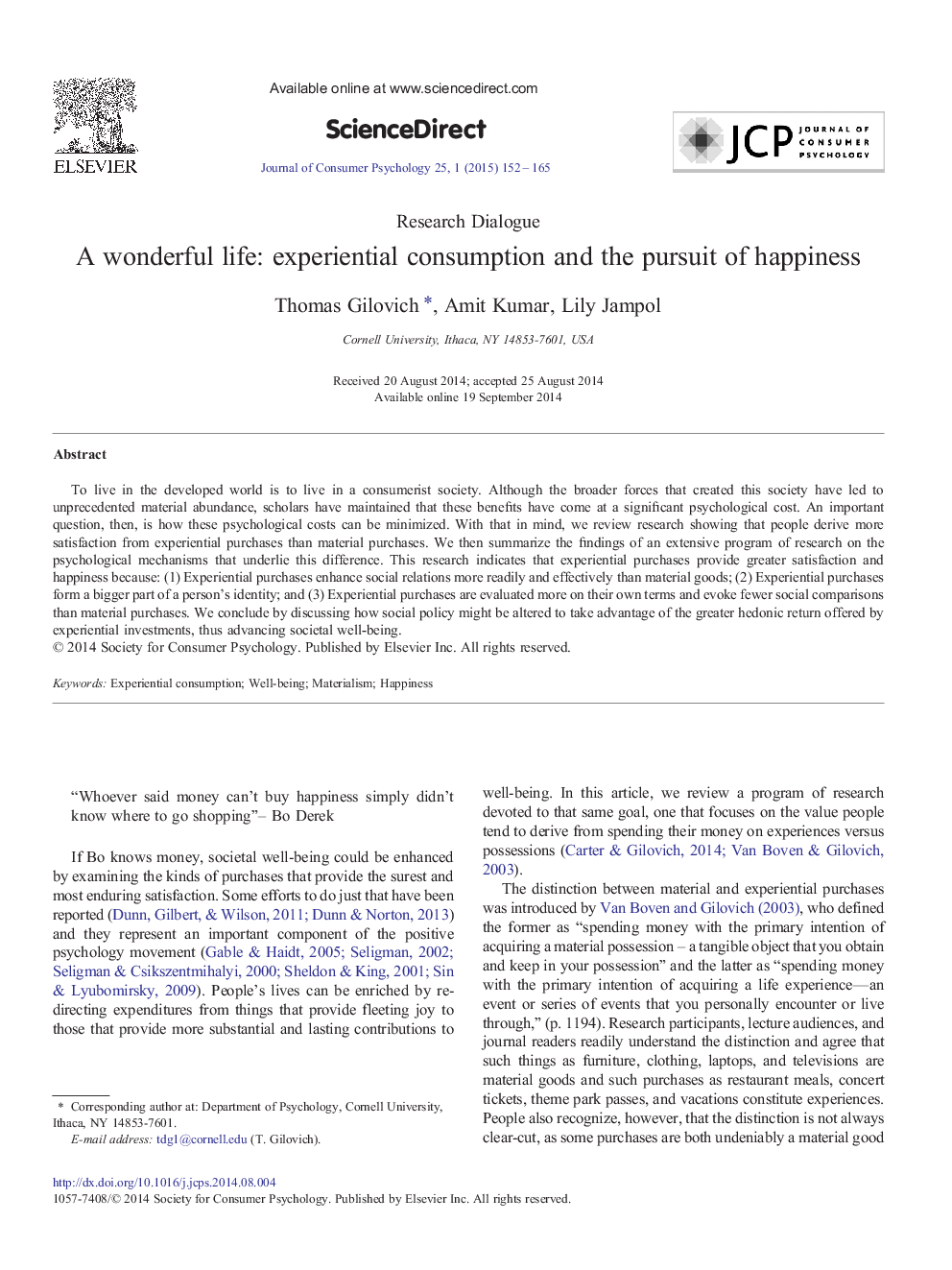| Article ID | Journal | Published Year | Pages | File Type |
|---|---|---|---|---|
| 882076 | Journal of Consumer Psychology | 2015 | 14 Pages |
To live in the developed world is to live in a consumerist society. Although the broader forces that created this society have led to unprecedented material abundance, scholars have maintained that these benefits have come at a significant psychological cost. An important question, then, is how these psychological costs can be minimized. With that in mind, we review research showing that people derive more satisfaction from experiential purchases than material purchases. We then summarize the findings of an extensive program of research on the psychological mechanisms that underlie this difference. This research indicates that experiential purchases provide greater satisfaction and happiness because: (1) Experiential purchases enhance social relations more readily and effectively than material goods; (2) Experiential purchases form a bigger part of a person’s identity; and (3) Experiential purchases are evaluated more on their own terms and evoke fewer social comparisons than material purchases. We conclude by discussing how social policy might be altered to take advantage of the greater hedonic return offered by experiential investments, thus advancing societal well-being.
